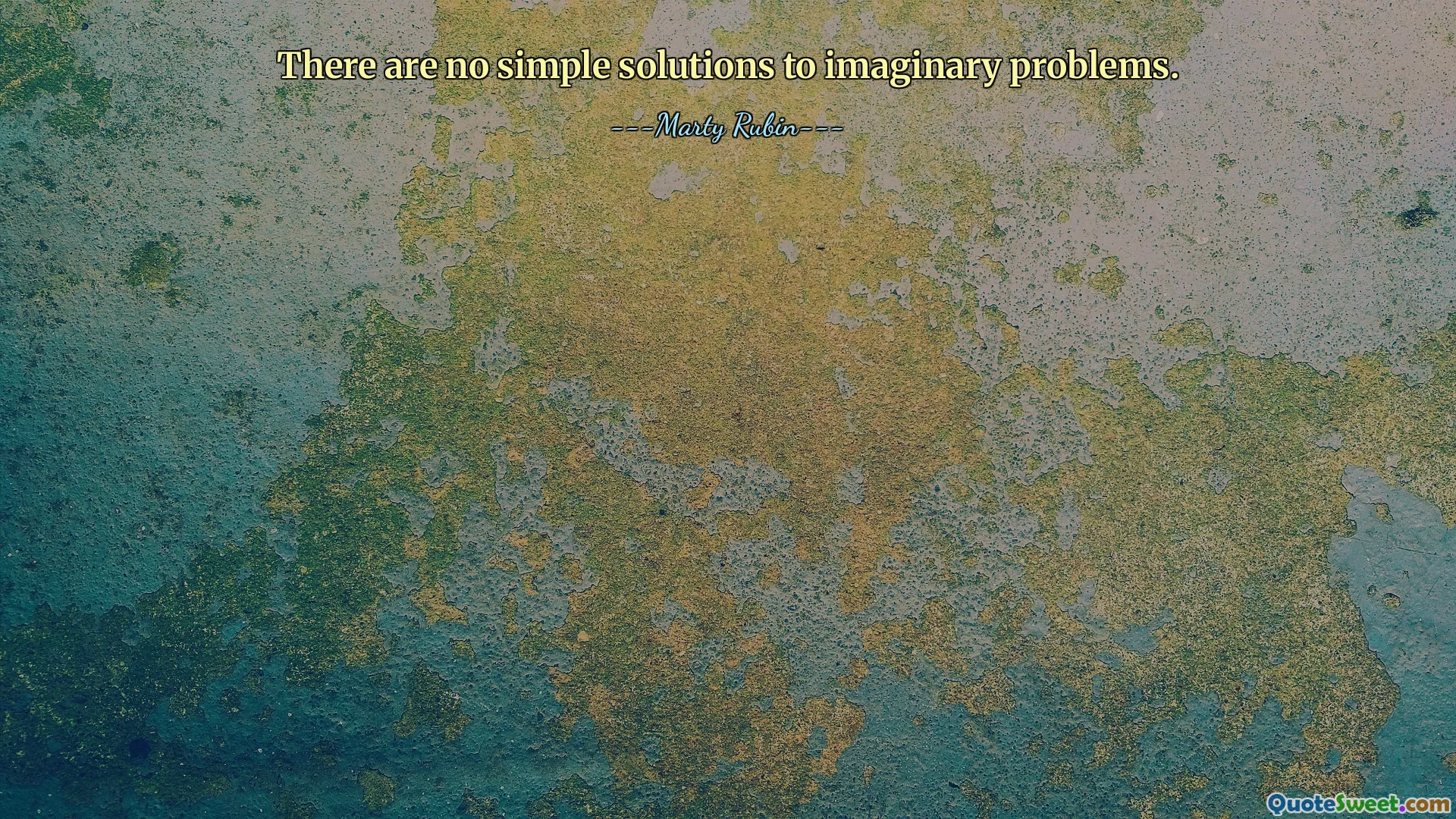
There are no simple solutions to imaginary problems.
**This quote highlights a fundamental truth about the nature of problems and human perception. Often, individuals or societies face difficulties that seem insurmountable or complicated, yet these issues are sometimes based on misconceptions, fears, or exaggerated concerns rather than tangible reality. The phrase challenges us to scrutinize the problems we perceive—are they genuinely complex, or are they shaped by our mindset and context? When we encounter 'imaginary problems,' we may find ourselves overwhelmed by unnecessary complexity, leading to frustration and confusion. Recognizing that some problems are constructed by our own perceptions can empower us to normalize those issues, deconstruct their origin, and realize that solutions may be much simpler than they initially appear. This insight urges critical thinking, encouraging us to ask whether the problem is real or perceived, and to focus our efforts on resolving genuine issues instead of expending energy on illusions. Sometimes, our anxiety, biases, or societal pressures inflate a problem’s severity. By differentiating between actual challenges and perceived obstacles, we can approach situations with clarity and calmness, avoiding the trap of overcomplication. The quote also nods to the importance of perspective; what seems complex from one angle might be straightforward from another. Embracing this perspective leads to smarter decision-making, less stress, and more effective solutions. Ultimately, it reminds us that clarity often comes from honest self-assessment and the willingness to challenge our assumptions about the problems we face, thereby avoiding unnecessary mental clutter and focusing on what truly matters. ---Marty Rubin---











